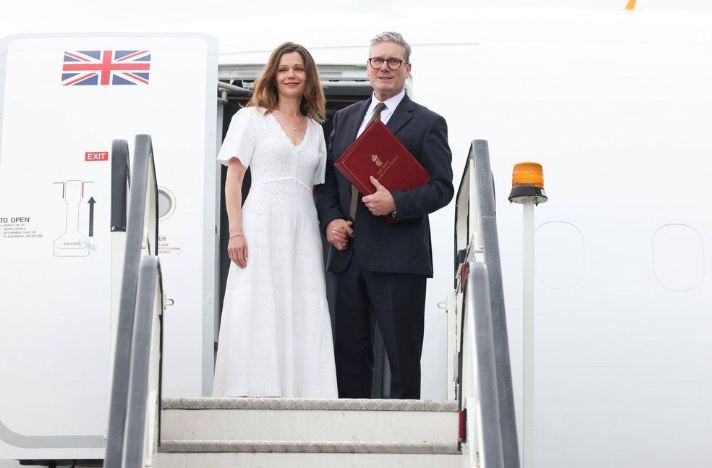Introduction
In an era marked by escalating geopolitical tensions, NATO’s role as a bulwark of collective security is more critical than ever. The recent announcement by Prime Minister Keir Starmer underscores the United Kingdom’s unwavering dedication to defense spending and support for Ukraine. This commitment is set against a backdrop of the highest global tensions since the Cold War, positioning the UK as a pivotal player in maintaining international stability.
Resurgent Defense Spending: A Strategic Imperative
The United Kingdom’s commitment to defense spending remains steadfast, with expenditures exceeding NATO’s 2% target and projected to reach 2.5% in the near future. This financial dedication is not merely a statistic but a testament to the UK’s strategic prioritization of national and global security. Prime Minister Keir Starmer’s promise of an “iron-clad” commitment to Ukraine is emblematic of this broader strategy, ensuring that Britain continues to be a major contributor to NATO’s collective defense efforts.
The UK’s Role in Supporting Ukraine
Since Vladimir Putin’s unprovoked invasion of Ukraine, the UK’s support has been unwavering. As one of the leading suppliers of military aid, second only to the United States, the UK has played a crucial role in bolstering Ukraine’s defense capabilities. This support, endorsed by both major political parties in the UK, reflects a national consensus on the importance of standing firm against aggression and upholding international law.
Navigating the Post-Cold War Geopolitical Landscape
The current global landscape is arguably the most perilous since the end of the Cold War. The specter of nuclear conflict, once thought to have receded, has reemerged, driven by renewed hostilities and regional conflicts. NATO’s collective security apparatus serves as a vital shield, not only for the UK but for all member states. This renewed focus on collective defense underscores the need for robust and sustained defense spending.
Addressing Domestic Challenges: The NHS Strikes
While international commitments are crucial, domestic issues such as the NHS strikes demand immediate attention. The recent industrial actions by junior doctors highlight the deep-seated issues within the healthcare system, exacerbated by nearly two decades of austerity and mismanagement. The new Health Secretary, Wes Streeting, faces the formidable task of resolving these grievances, which are essential for reducing the near-record waiting lists and improving overall healthcare delivery.
Strategic Reforms in the NHS
The resolution of the NHS strikes is not merely a financial issue but one of strategic importance. Ensuring better working conditions and prospects for medical professionals is critical for the sustainability of the healthcare system. Streeting’s strategic approach and superior negotiation skills will be pivotal in restoring stability within the NHS, which is essential for maintaining public trust and ensuring high-quality care.
Conclusion: A Balanced Approach to Security and Domestic Welfare
The UK’s approach to balancing international security commitments with domestic welfare challenges is a testament to its strategic acumen. Prime Minister Keir Starmer’s iron-clad commitment to NATO and support for Ukraine reflects a broader understanding of the interconnected nature of global and national security. Simultaneously, addressing domestic issues such as the NHS strikes demonstrates a holistic approach to governance, ensuring that the UK remains resilient both at home and abroad.

Sunil Garnayak is an expert in Indian news with extensive knowledge of the nation’s political, social, and economic landscape and international relations. With years of experience in journalism, Sunil delivers in-depth analysis and accurate reporting that keeps readers informed about the latest developments in India. His commitment to factual accuracy and nuanced storytelling ensures that his articles provide valuable insights into the country’s most pressing issues.



